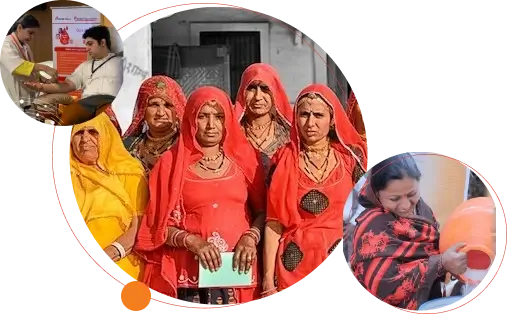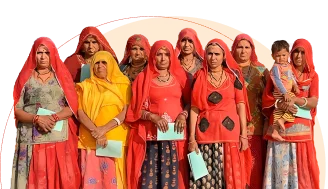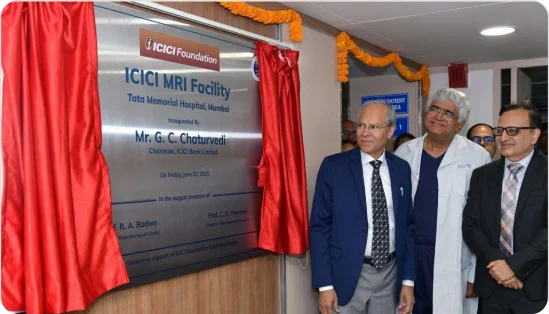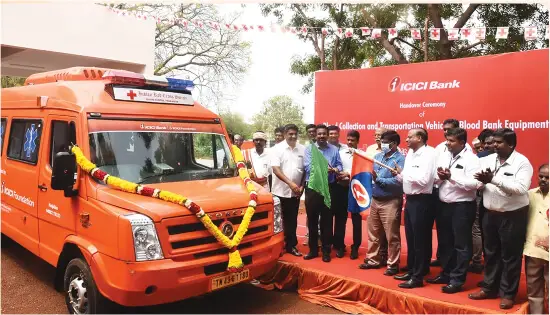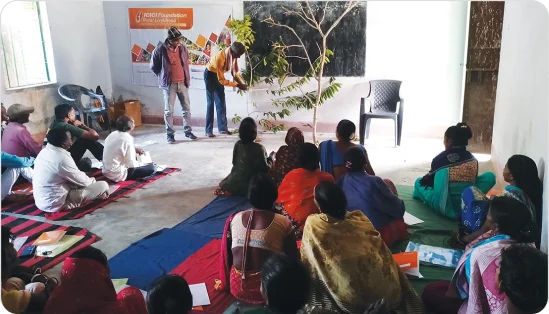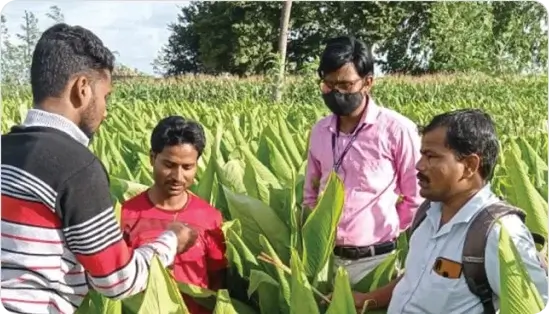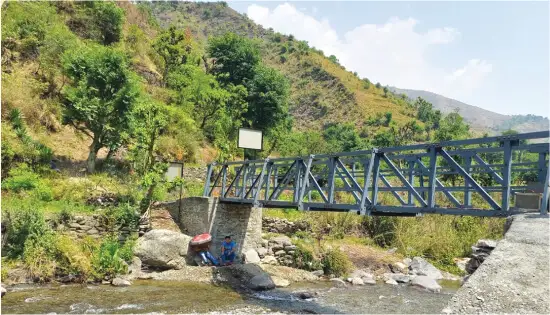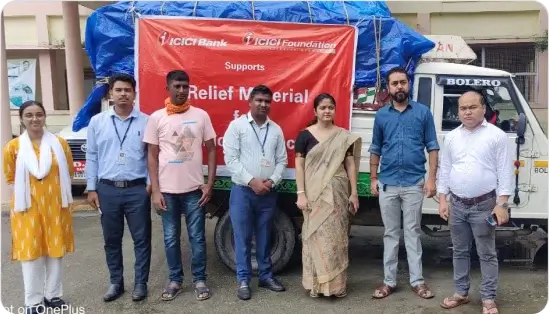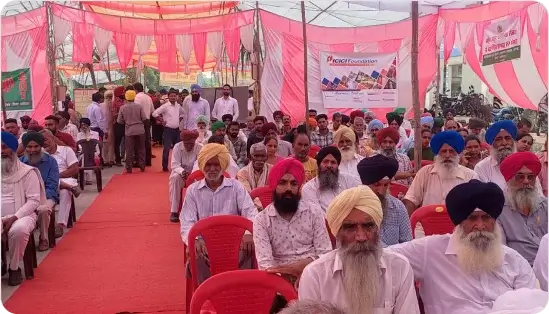Major focus areas

Water conservation efforts
Several initiatives have been taken to conserve and revive water bodies in various parts of the country. There is also a focus on promoting rain water harvesting (RWH) in locations facing water shortage. The initiative has led to installation of 6,800 RWH units in rural schools across 20 states till March 31, 2024 with an aggregate annual RWH potential of over 16 billion litres. Additionally, water shed projects are being taken up to revive existing water bodies, bunds and gabion structures are being constructed to channelise flow of water in desired areas.
The water conservation initiatives have created an annual water harvesting potential of over 25.8 billion litres till date.

Afforestation
Planting trees has several benefits for environmental conservation and improving the local biodiversity. ICICI Bank has been taking initiatives to consistently expand the green cover through projects like Miyawaki plantation, avenue plantation and grasslands in forest reserves. 3.7 million saplings have been planted till March 31, 2024 across the country.
In fiscal 2024, project ‘GhanVan’ was initiated in collaboration with Tata Power. As part of this, 250,000 trees across 75 acres would be planted over the next five years in the Western Ghats in Maharashtra. The project focuses on preserving regional biodiversity with native species, creating habitats for birds, generating employment for local communities and promoting sustainable development. The trees will be planted in three phases in the catchment areas of Tata Power’s hydropower plant locations at Bhivpuri, Khopoli and Bhira.
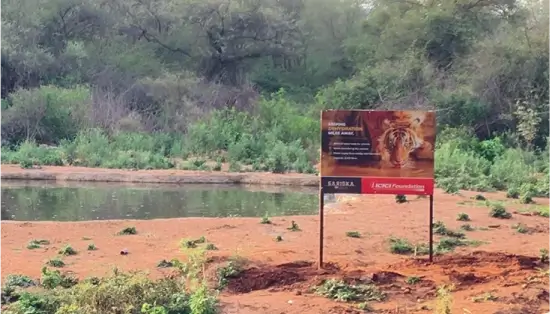
Ecological and wildlife conservation in forests
An integrated approach to conserving forest reserves, ecology and biodiversity, has been adopted keeping in mind the objective to promote sustainable livelihoods for the communities in the border areas of the forests and national parks. The interventions in the forests include habitat restoration by clearing weeds, developing grasslands, restoration of water bodies and initiatives such as provision of grid-free power through installation of solar panels.
Creating water structures in and around forests, national parks and other protected areas has also been undertaken, to provide continuous access to clean water to the bordering communities and wildlife. These include borewells, earthen bunds, watering holes, gabion structures, gravity structures, ponds and water saucers. Further, these structures help in nurturing biodiversity, preventing soil erosion and recharging of groundwater. The initiative, undertaken in collaboration with forest departments of the respective states, has covered 53 forests and wildlife sanctuaries in 19 states.
Livelihood support for communities is targeted to reduce their dependence on forest produce. Some initiatives include skill development of rural youth, training farmers on cultivation of relevant alternate/ second crops, fruits, etc. The efforts have benefitted over 20,000 individuals across eight forests.
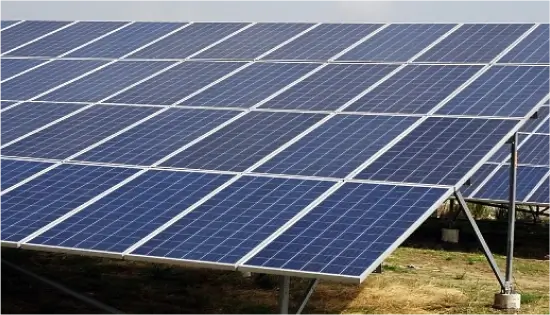
Solar power in rural schools
Promoting use of clean energy through installation of solar power units in rural schools, has been initiated since fiscal 2022. This helps in providing steady supply of power and also reducing emissions in the schools. In fiscal 2024, 1,950 KWp of solar power capacity was provided in 770 schools. Overall, 9,970 KWp of solar power capacity has been installed across 3,180 schools since fiscal 2022.
The initiative is thus empowering students, teachers and communities by providing access to clean and sustainable energy sources and yielding economic benefits for the schools
Our CSR Committee
Mr. Pradeep Kumar
Sinha
Non-Executive (part-time) Chairman
Mr. Radhakrishnan
Nair
Independent Director
Ms. Vibha Paul
Rishi
Independent Director
Mr. Rohit Bhasin
Independent Director
Mr. Rakesh
Jha
Executive Director
Projects approved under the CSR Plan
Healthcare
Projects aimed at providing infrastructure support and treatment in the areas of cancer care, cardiac care, eye care and trauma care to meet preventive and curative requirements.
Environment
Initiatives in the areas of forest conservation and ecology, water conservation, waste management, promoting use of renewable energy, habitat restoration, and afforestation.
Livelihood
Projects in the areas of agricultural and allied activities and skill development with a focus on integrated rural development.
Social interventions
These include local need-based projects and projects that provide support to India’s border villages, support for armed forces, disaster relief and rehabilitation and financial literacy that are centred on community development.
Other areas
Creating social awareness, responding to natural disasters and calamities, research and development and other need based financial support.
Impact Assessment Reports
The Bank has conducted impact assessment of twelve projects through external agencies in FY 2023-2024.
ICICI Foundation for
Inclusive Growth
The ICICI Foundation was set up in 2008 to further strengthen the Group’s legacy of promoting inclusive growth. ICICI Foundation focuses on high impact projects that are sustainable.
